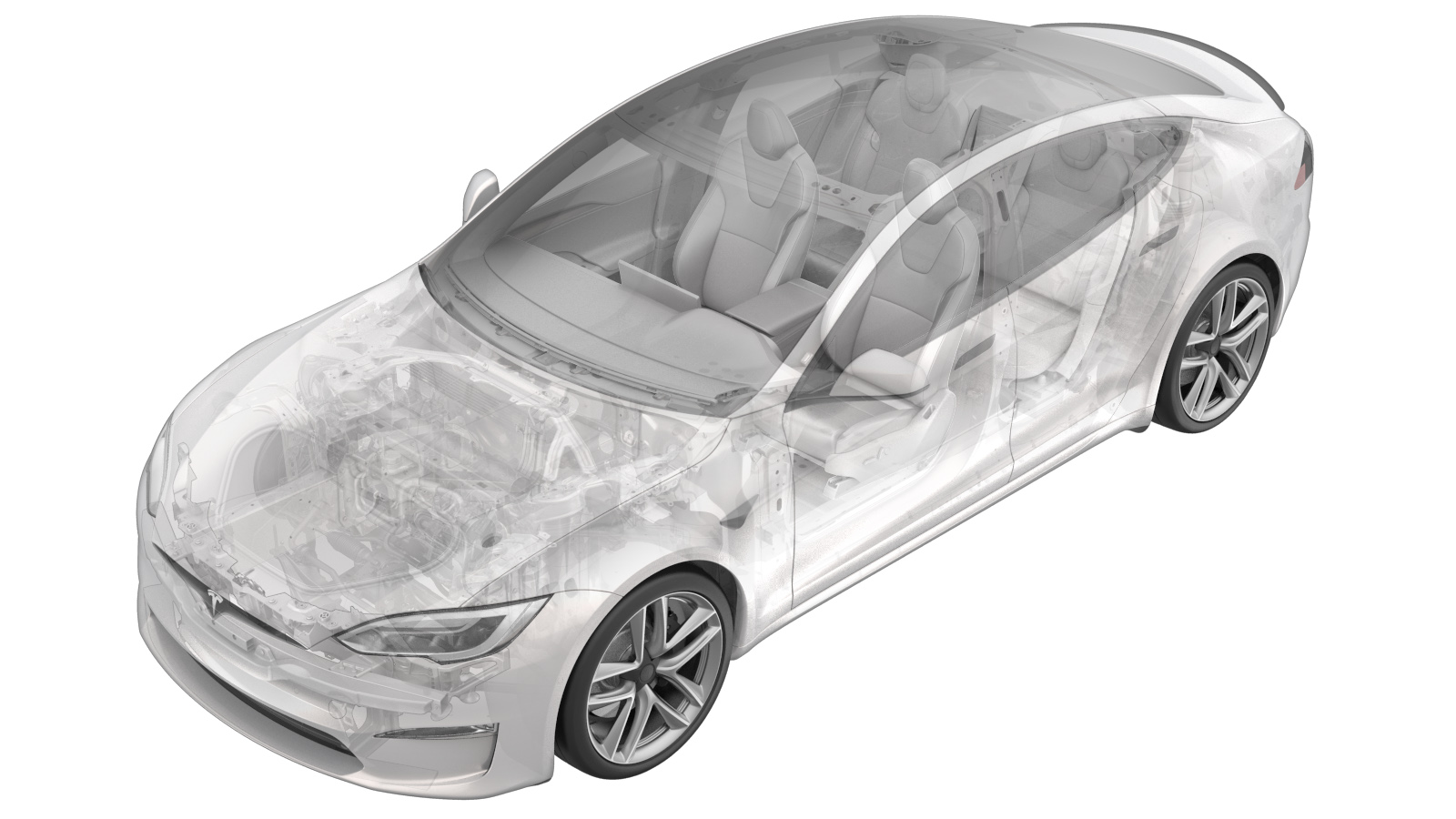Link - Fore - Lower - Rear - LH (Remove and Replace)
 Correction code
31031412
0.48
NOTE: Unless otherwise explicitly
stated in the procedure, the above correction code and FRT reflect all of the work
required to perform this procedure, including the linked procedures. Do not stack correction codes unless
explicitly told to do so.
NOTE: See Flat Rate Times to learn
more about FRTs and how they are created. To provide feedback on FRT values, email ServiceManualFeedback@tesla.com.
NOTE: See Personal Protection to make sure proper PPE is worn when
performing the below
procedure.
Correction code
31031412
0.48
NOTE: Unless otherwise explicitly
stated in the procedure, the above correction code and FRT reflect all of the work
required to perform this procedure, including the linked procedures. Do not stack correction codes unless
explicitly told to do so.
NOTE: See Flat Rate Times to learn
more about FRTs and how they are created. To provide feedback on FRT values, email ServiceManualFeedback@tesla.com.
NOTE: See Personal Protection to make sure proper PPE is worn when
performing the below
procedure.
Torque Specifications
| Description | Torque Value | Recommended Tools | Reuse/Replace | Notes |
|---|---|---|---|---|
| Nut and bolt that attaches the rear lower fore link to the knuckle |
 150 Nm (110.6 lbs-ft) |
|
Reuse |
Note 2025+ Model S
knuckles have captive flag nuts for some joints. |
| Bolts (2x) that attach the rear lower fore link to the subframe |
 85 Nm (62.7 lbs-ft) |
|
Reuse |
Remove
- Raise and support the vehicle. See Raise Vehicle - 2 Post Lift.
- Remove the LH rear wheel. See Wheel Assembly (Remove and Install).
- Remove the mid aero shield. See Panel - Aero Shield - Rear (Remove and Replace).
-
Remove the bolt that attaches the LH
rear lower fore link to the knuckle.
TIpUse of the following tool(s) is recommended:
- 21 mm socket
Note2025+ Model S knuckles have captive flag nuts for some joints. -
Remove the bolts (x2) that attach the
LH lower fore link to the subframe, and then remove the link from the vehicle.
TIpUse of the following tool(s) is recommended:
- 16 mm socket
Install
-
Position the LH lower fore link to the
subframe, and install the bolts (2x) that attach the link to the subframe.
 85 Nm (62.7 lbs-ft)TIpUse of the following tool(s) is recommended:
85 Nm (62.7 lbs-ft)TIpUse of the following tool(s) is recommended:- 16 mm socket
-
Install and hand tighten the bolt that
attaches the LH lower fore link to the knuckle.
TIpUse a pry bar to help align the fastener hole to the knuckle.NoteThe bolt will be torqued at a later step.TIpUse of the following tool(s) is recommended:
- 21 mm socket
Note2025+ Model S knuckles have captive flag nuts for some joints. -
If installed, remove and discard
the bolt that attaches the brake rotor to the hub.
NoteA new bolt will not be installed.TIpUse of the following tool(s) is recommended:
- 13 mm socket
-
Install a hub jack adapter onto the LH
rear hub, and then use a support stand to support the LH rear suspension at ride height
(85 mm +/- 5 mm).
NoteMeasure the distance from the upper fore link to the bolt on the frame rail to make sure LH suspension is set to ride height.TIpUse of the following tool(s) is recommended:
- Hub Jack Adapter - 1459409-00-A
-
Torque the bolt that attaches the LH
rear lower fore link to the knuckle and mark it with a paint pen.
 150 Nm (110.6 lbs-ft)TIpUse of the following tool(s) is recommended:
150 Nm (110.6 lbs-ft)TIpUse of the following tool(s) is recommended:- 21 mm socket
- Lower the support stand until the suspension is unladen, then remove it from the vehicle.
- Remove the hub jack adapter from the hub.
- Install the LH rear wheel. See Wheel Assembly (Remove and Install).
- Install the mid aero shield. See Panel - Aero Shield - Rear (Remove and Replace).
- Remove the vehicle from the lift. See Raise Vehicle - 2 Post Lift
- Refer to the Alignment Requirement tables to determine whether an EPAS alignment check (EC) or four wheel alignment check (AC) is necessary. If performed, add the alignment check/adjust as a separate activity. See Alignment Requirement - Suspension.